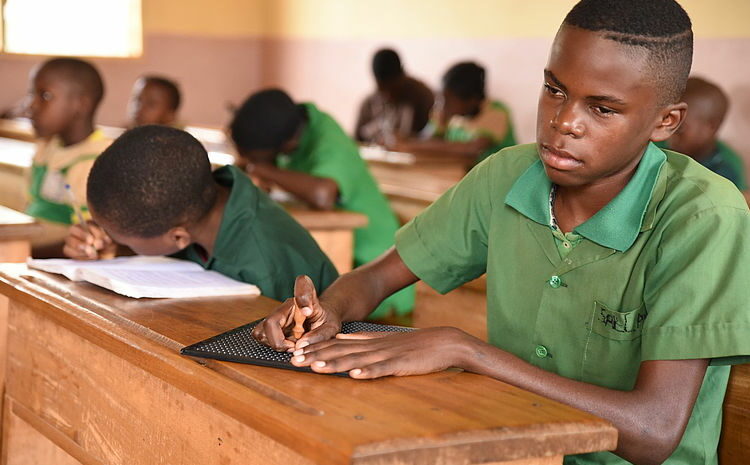Recently, the Ekiti State government rolled out programmes aimed at addressing the challenges faced by Persons With Disabilities (PWDs). The adviser on the state’s special education and social inclusion, Princess Adetoun Agboola, said several of such initiatives have been introduced to promote inclusivity and accessibility.
This is even as the Lagos State governor, Babajide Sanwo – Olu recently celebrated his 59th birthday with 250 children living with disabilities and their teachers.
This newspaper commends the action of the Ekiti and Lagos State governments given the fact that children and people living with disabilities in the country scarcely get the spotlight.
On education, the Ekiti state government claimed to have established three special schools ; one each for the blind, the deaf and the physically challenged and intellectual disabled.
While this is commendable, this newspaper calls for further action especially in the area of inclusive education, of the revised 2017 National Policy on Inclusive Education.
We point out that inclusive education involves bringing together persons with disabilities and the non-disabled to study in the same learning environment with adaptable facilities and equipment.
UNESCO and many other international organisations have emphasised the role of inclusive education towards providing equal opportunity for the thriving of both abled and disabled children.
The country’s 2017 National Policy on Inclusive Education endorses UNESCO’s definition of inclusive education, considering it as the process of removing all barriers and providing access to quality education to meet the diverse needs of all learners in the same learning environment.
According to the document, inclusive education addresses vulnerable and marginalised groups, such as learners who are excluded from or within education; living in the streets; involved in child labour; from minority cultures and/or religions, including those speaking minority languages; physically and/or psychologically abused; growing up in economic and/or cultural poverty. Others are those with health challenges, including learners affected by HIV or AIDS; or from families who are addicted to or abusing drugs; as well as those with temporary learning challenges, those who have dropped out of school, learners who learn differently – slower or faster – than the average learner, those with impairments/disabilities, learners experiencing barriers to learning caused by factors other than impairments, and learners with social or emotional challenges, including girls who are pregnant or have given birth.
Consequently, the aim of inclusive education is to eliminate social exclusion arising from attitudes and responses to diversity in race, social class, ethnicity, religion, gender and ability.
It’s our informed opinion that all children should be given equal chance to learn to the best of their abilities and with this arrangement in place, the assistive technology becomes an unconditional requirement for children with special needs.
We know that addressing issues relating to disability is a challenge to most countries including Nigeria, but concerted efforts should be geared towards this direction as we are faced with people with disabilities confronted with problems in their day to day existence.
They experience depression, social marginalisation and isolation.
A study conducted in 2021 revealed that inclusive education in Nigeria is still in its early stages and is faced with several challenges, including lack of understanding and awareness, inadequate resources and infrastructure, and a shortage of qualified teachers.
According to available record, only five states, including Kaduna, Kwara and Lagos, Enugu have adopted inclusive education policies, which precede the new federal policy.
In Lagos State, for instance, the practice of inclusive education commenced since 2003 with only three primary schools. This has increased to 44 inclusive schools (31 primary and 13 secondary schools) as of September 2022.
So far, only 1,177 full-fledged special needs schools exist in the country with Kano (153), Kaduna (79) and Lagos (75) having the highest number of special needs school.
We are aware that UBEC funds could easily and readily make inclusive education realisable for many state governments but, unfortunately, they are not willing to provide counterpart funding to access it.
We are of the view that until state governments begin to prioritise the educational and health needs of its citizenry, most especially the physically disadvantaged, the developmental indices will continue to rank low.
Apart from so many advantages and benefits of inclusive education, it prepares students for the realities of the diverse society they will encounter as adults.





